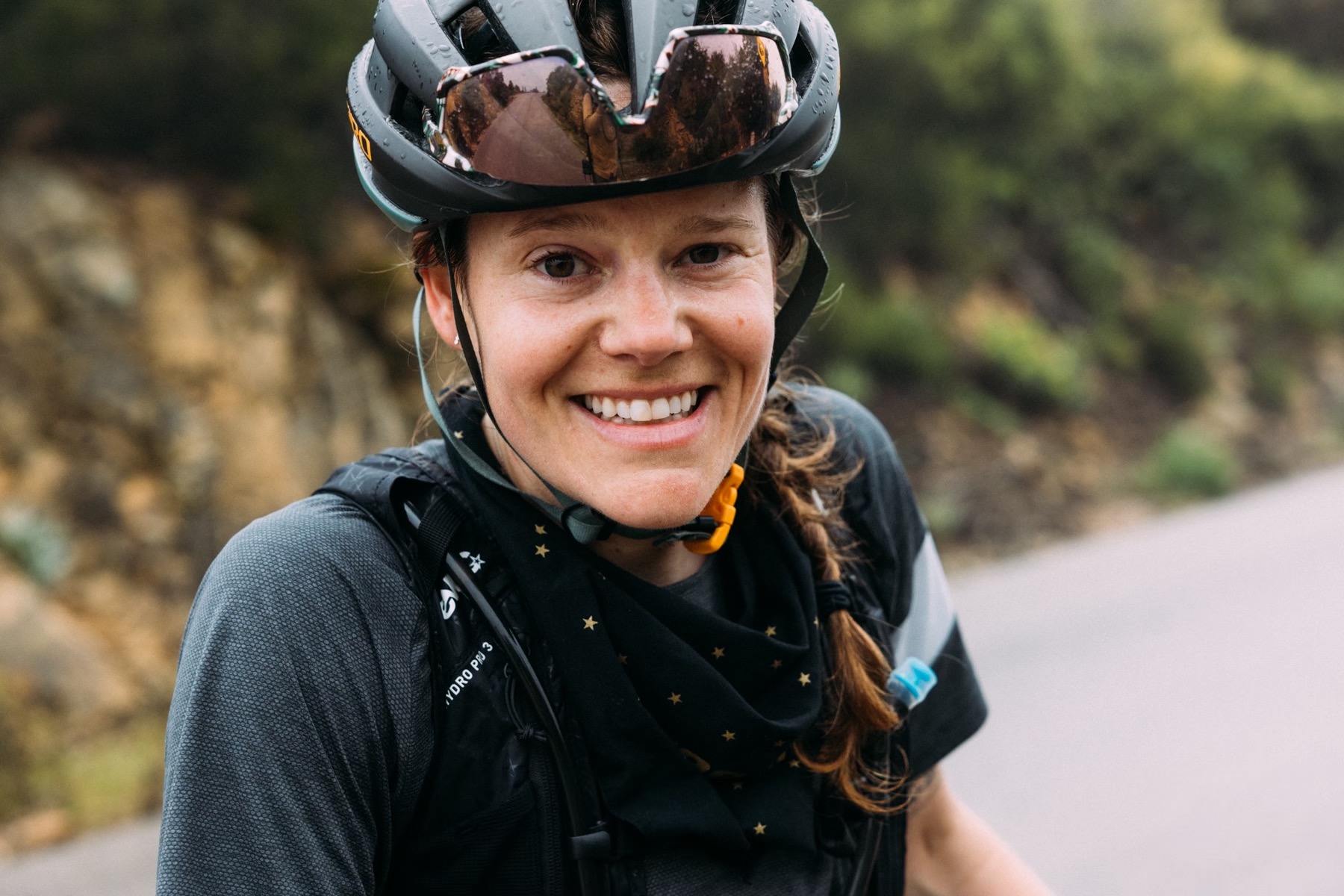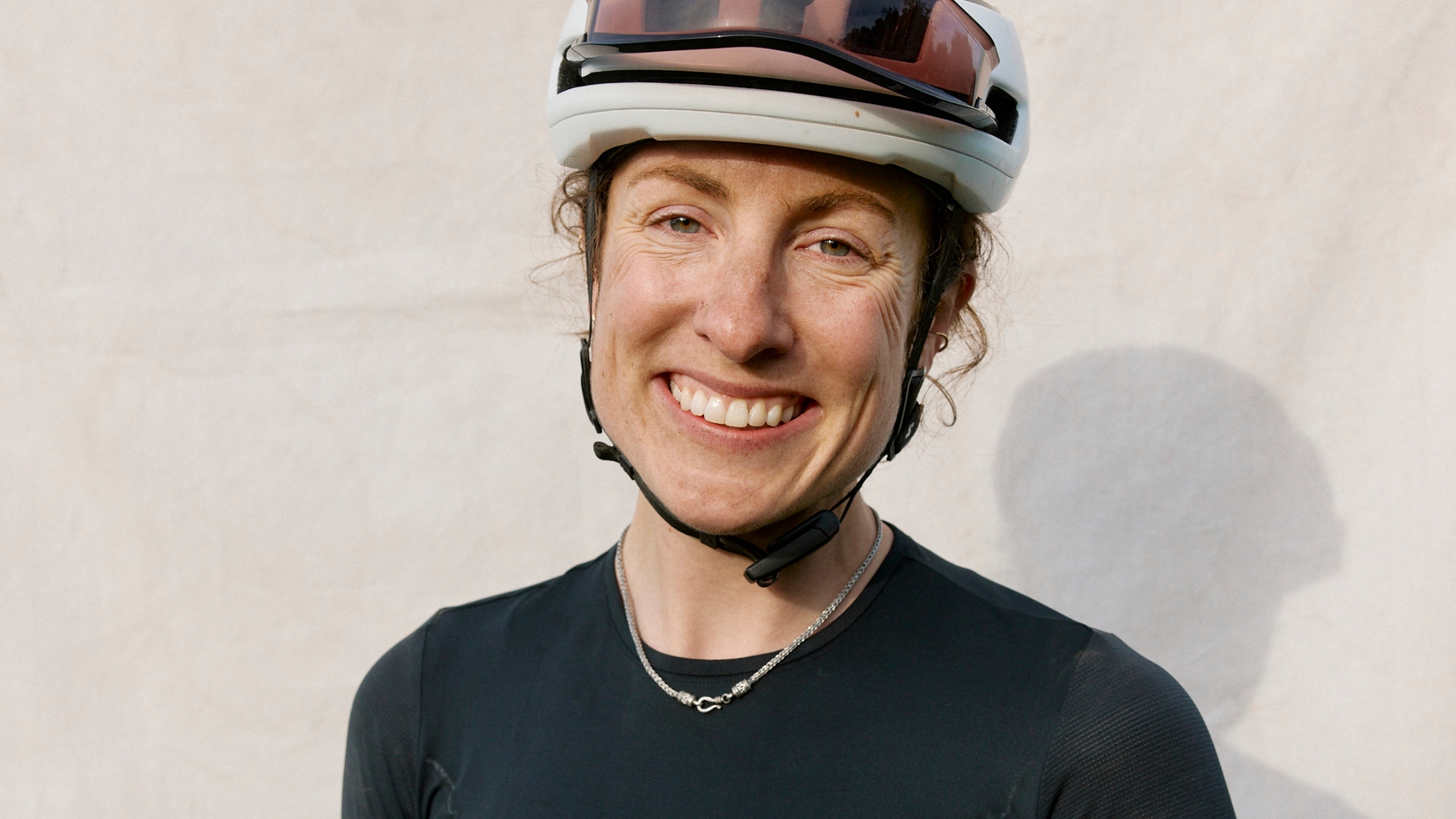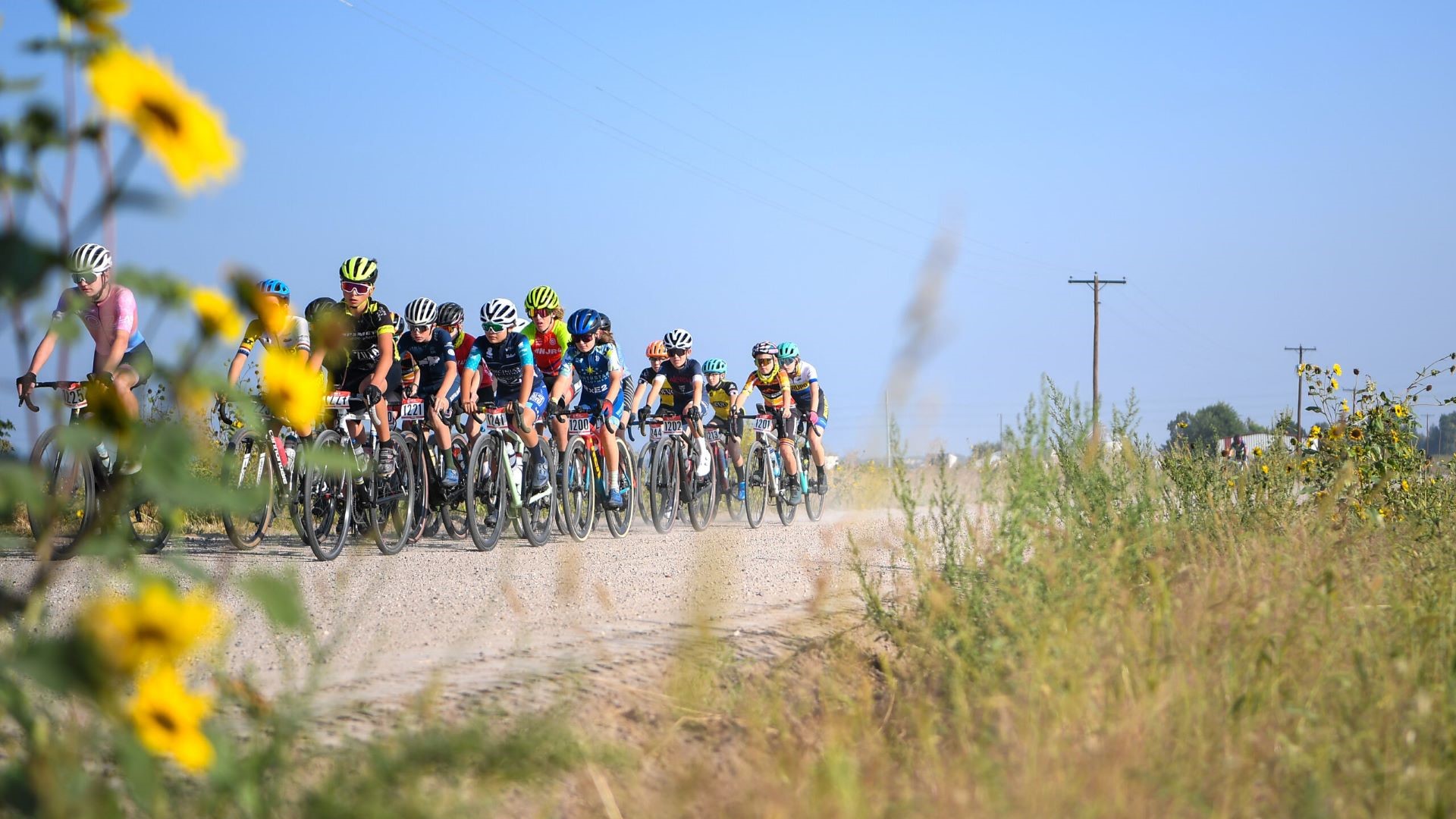Enough already with the F1-inspired pit stops in gravel racing, it's time for riders to be self-sufficient again
The spirit of adventure, resourcefulness and inclusivity is diluted to the point where we risk losing sight of the qualities that made the discipline so unique.


A video showcasing the efficient pit stop of Sofía Gómez Villafañe and her four-person crew at the 2023 Unbound Gravel race has been making the social media rounds. In it, Villafañe seamlessly transitions into the checkpoint, entrusting her dirty bike to her crew, who, with the precision of a Formula 1 team, promptly get to work. One member power-washes the bike, another swiftly swaps out water bottles, while a third hands Villafane a fresh hydration pack and stuffs a new ice sock down the neck of her jersey. Meanwhile, another crew member assists Villafañe out of her potentially malfunctioning shoe and into a new one. Villafañe, for her part, quickly dumps trash from her jersey and restocks her gels. In mere minutes, she's back on the course with fresh gear and nutrition to tackle the next 60 miles of the race.
In shorter events, such as last weekend's Mid South race in Stillwater, Oklahoma, half of the riders never dismounted their bikes as they passed through the feed zone. They simply grabbed a musette from their support personnel and were off—any water stop etiquette forgotten.
The meteoric rise of gravel racing has ushered in a new era, complete with its own category of products, UCI-sanctioned events, lucrative prizes, and superstar participants. However, this professionalization and commercialization threaten the sport's ethos —the spirit of gravel, if you will.
A post shared by Brian Co (@veloworthy)
A photo posted by on
Gravel racing was born out of adventure riding where grit, mechanical know-how, and exploration equal on-the-bike fitness. As such, the first gravel races embodied a spirit of adventure, self-reliance and resourcefulness. Participants had to rely on their own capabilities to navigate rough terrain, manage mechanical issues and sustain themselves throughout the race. It was an atmosphere that valued friendly competition over the adversarial kind, with unspoken rules regarding things like group breaks and shared effort.
These days, however, it's every rider for themselves, aided by their own mechanics and support personnel. This presents a significant advantage for riders with the means to assemble and sustain such crews, widening the gap between the haves and have-nots in the gravel racing community. Not many so-called privateers have the resources to travel from one remote location to the next with a team in tow.
Thus, like every other discipline in bike racing, gravel racing is at risk of becoming a sport where success is determined not only by physical prowess and mental fortitude but also by the depth of one's pockets and sponsorships. This financial disparity diminishes the sense of adventure, inclusivity and self-reliance that attracted so many to the gravel discipline in the first place.
To steer gravel racing back to its roots and prevent it from evolving into a road race on different terrain, I propose a simple measure for fairness and self-sufficiency: the mid-race bag drop.
Get The Leadout Newsletter
The latest race content, interviews, features, reviews and expert buying guides, direct to your inbox!
Popular in ultra-endurance running and adventure races, a mid-race bag drop allows participants to access their pre-assembled supplies at designated checkpoints during the event.
I'm aware that some events already offer a bag drop, but this is meant as a service in lieu of having a personal support team and often comes at a fee. Instead, I propose to ban personal support crews and make this bag drop service included in the registration fee and accessible for all registrants. A mid-race bag drop would level the playing field by providing all participants with equal opportunities to refuel and replenish their resources, regardless of their financial means.
The current trajectory of gravel racing, with its growing reliance on support crews and external resources, threatens to undermine the core values of fairness, inclusivity, and self-sufficiency that first defined the sport. The spirit of adventure and camaraderie is diluted to the point where we risk losing sight of the qualities that made the discipline so unique.
Enough already with the F1-inspired pit stops in gravel races; I, for one, would love to see fewer support crews and more self-reliance. Bring back the group breaks and the MacGyvering!

Thank you for reading 20 articles this month* Join now for unlimited access
Enjoy your first month for just £1 / $1 / €1
*Read 5 free articles per month without a subscription

Join now for unlimited access
Try first month for just £1 / $1 / €1

Cycling Weekly's North American Editor, Anne-Marije Rook is old school. She holds a degree in journalism and started out as a newspaper reporter — in print! She can even be seen bringing a pen and notepad to the press conference.
Originally from the Netherlands, she grew up a bike commuter and didn't find bike racing until her early twenties when living in Seattle, Washington. Strengthened by the many miles spent darting around Seattle's hilly streets on a steel single speed, Rook's progression in the sport was a quick one. As she competed at the elite level, her journalism career followed, and soon, she became a full-time cycling journalist. She's now been a journalist for two decades, including 12 years in cycling.
-
 Rudy Project Rebel bike helmet review
Rudy Project Rebel bike helmet reviewRebelling against the solid shell oversized helmet fashion, the Rudy Project Rebel goes big on ventilation and breathability, but there is a weight penalty
By Hannah Bussey Published
-
 'I wanted to be world and Olympic champion – my parents made me feel that it was possible': Meet Sophie Capewell and her gold medal-winning mum
'I wanted to be world and Olympic champion – my parents made me feel that it was possible': Meet Sophie Capewell and her gold medal-winning mumSome mothers and daughters make memories together. The world-beating Capewells make history too. Tom Davidson meets the extraordinary duo
By Tom Davidson Published
-
 'You shouldn’t be riding 40mm tyres in a gravel race' — Dylan Johnson on tyre optimisation, wind tunnel testing and growing up as 'a weird kid who only cared about bikes’
'You shouldn’t be riding 40mm tyres in a gravel race' — Dylan Johnson on tyre optimisation, wind tunnel testing and growing up as 'a weird kid who only cared about bikes’Anne-Marije Rook geeks out with pro racer, cycling coach and YouTuber Dylan Johnson about the gravel racing tweaks that can make you faster
By Anne-Marije Rook Published
-
 ‘Pursuing racing full-time didn’t make me a better athlete’ — Maude Farrell on why going all-in on sport didn’t bring the success she expected
‘Pursuing racing full-time didn’t make me a better athlete’ — Maude Farrell on why going all-in on sport didn’t bring the success she expected'I realised that it doesn't work for me...and it clearly doesn't work for my bank account,' the dual athlete says
By Anne-Marije Rook Published
-
 SBT GRVL introduces Women’s Team Race Challenge, expands female participation in sold-out event
SBT GRVL introduces Women’s Team Race Challenge, expands female participation in sold-out eventNew team-based format encourages amateur female cyclists to race together, offering a $3,000 prize purse and additional registration spots
By Anne-Marije Rook Published
-
 Sarah Sturm: How you win the Life Time Grand Prix gravel series and why I left
Sarah Sturm: How you win the Life Time Grand Prix gravel series and why I leftAs a two-time series podium finisher, Sturm applied again for 2025 but pulled out at the last minute. Here’s why
By Sarah Sturm Published
-
 Ted King to be inducted in the Gravel Cycling Hall of Fame
Ted King to be inducted in the Gravel Cycling Hall of FameKing is joined by LeLan Dains, John Hobbs, Ted King and Amanda Nauman-Sheek in the inductees class of 2025
By Anne-Marije Rook Published
-
 Six increasingly bold predictions for gravel cycling in 2025
Six increasingly bold predictions for gravel cycling in 2025New race tactics, live coverage, mountain bike tyres and more. You read it here first, folks.
By Logan Jones-Wilkins Published
-
 Gravel cyclists aren't all the same: a guide to the climbers, punchers and all-rounders of the dirt roads
Gravel cyclists aren't all the same: a guide to the climbers, punchers and all-rounders of the dirt roadsAs this dynamic discipline establishes itself, so do its archetypes — though the lines remain blurred
By Ryan Simonovich Published
-
 USA Cycling debuts Junior National Series, offering a unique pathway to elite racing
USA Cycling debuts Junior National Series, offering a unique pathway to elite racingFeaturing the biggest races in the US, the new series offers young talent a dedicated talent development and identification pathway
By Anne-Marije Rook Published